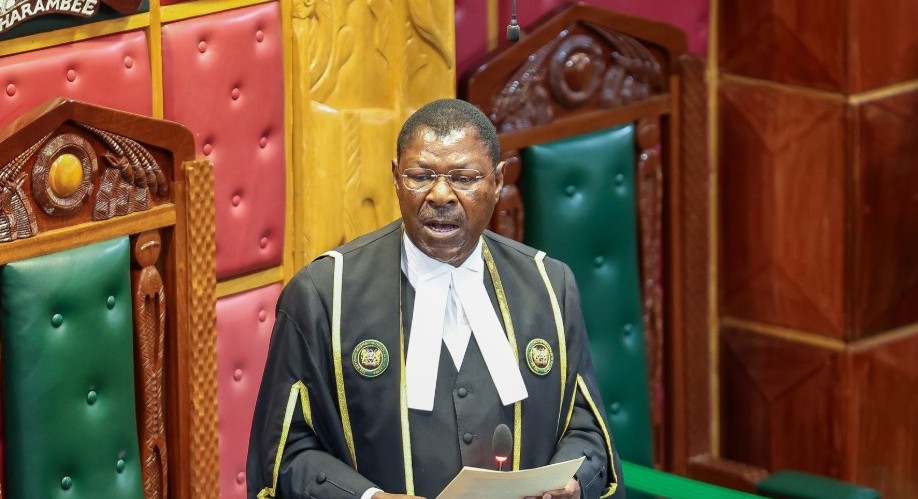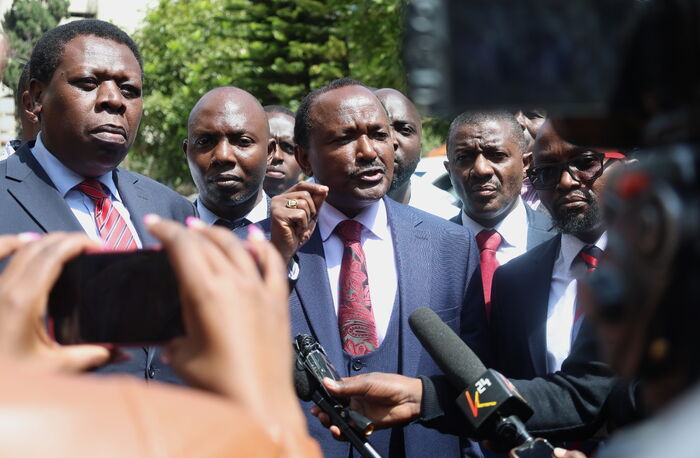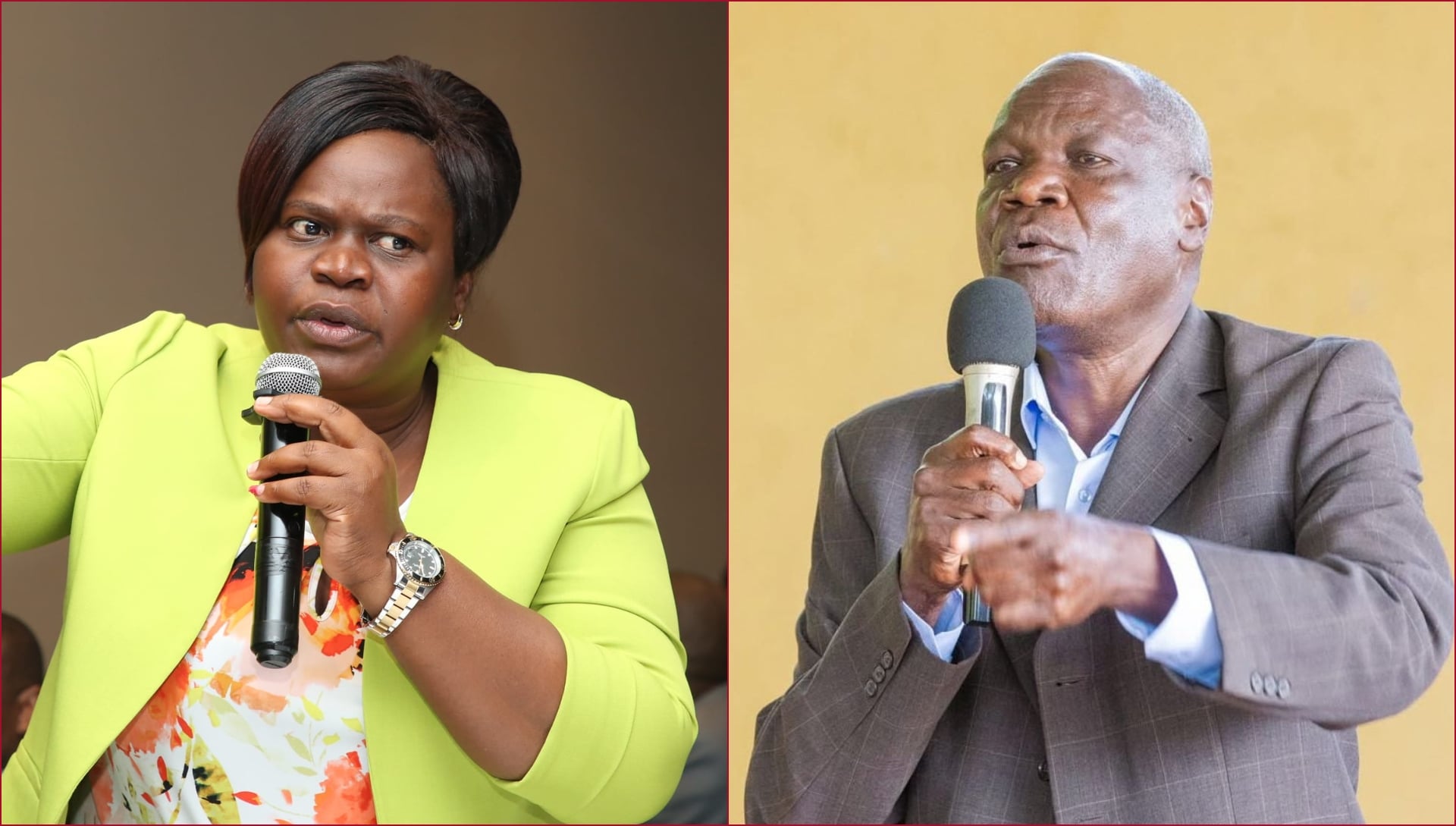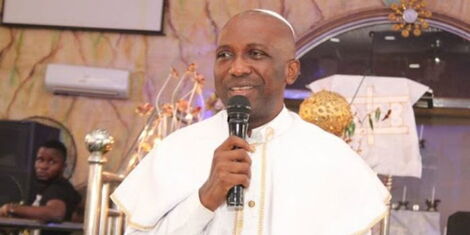Kenya’s Speaker of the National Assembly, Moses Wetang’ula, has sparked a fierce backlash after critics accused him of abandoning his role as a neutral arbiter and instead becoming a vocal agent of the ruling UDA party.
Senate Majority Chief Whip Bonny Khalwale led the charge, citing violations of Chapter Six of the Constitution—Kenya’s ethical standards code—claiming that Wetang’ula’s participation in what should be impartial legislative functions has been replaced by overt campaign activity for President William Ruto’s re-election bid.
Khalwale pointed to Speaker Wetang’ula’s presence at empowerment events, where public funds were being distributed, as proof of his transformation from dispassionate facilitator to partisan promoter.
“Nowhere in the history of the Republic of Kenya has the Speaker ever done that,” Khalwale declared, insisting that the speaker’s behavior effectively turned the House into a propaganda extension of the executive.

Further raising alarm, Wetang’ula—speaking in Kiambu County—urged residents of Kikuyu Constituency to rally behind Ruto for a second term, even delivering presidential greetings on stage. He dismissed local critics, including Deputy President Gachagua, arguing:
“You voted Ruto… you can’t give birth to a child and then throw her.” This rhetoric, critics warn, directly contradicts the neutrality expected from the Speaker’s office. Former Speaker Justin Muturi also weighed in, condemning Wetang’ula’s public political endorsements as dangerous precedents.
He urged the Speaker to stick to impartial oversight, cautioning that personal stances alienate MPs of diverse views. Meanwhile, Machakos MP John Kaguchia blasted Wetang’ula’s dual role as party leader and Speaker as unconstitutional and ethically compromised.
Why This Is a Constitutional Flashpoint.
Erosion of Parliamentary Neutrality.
The Speaker’s partisan actions threaten the very foundation of legislative independence, raising questions about checks and balances in Kenya’s democracy.Undermining Public Trust
When the Speaker openly champions a political campaign, the public begins to perceive Parliament not as a forum for debate but as a rubber-stamp for the executive.Precedent for Political Overreach.
Allowing such behavior could normalize executive influence within Parliament, diminishing institutional integrity and inviting further politicization of state mechanisms.













Leave a Reply